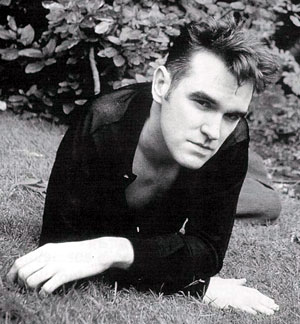 It was a disaster. Except that it wasn’t. I should have checked a bit more carefully. Should have been a bit more pushy. Should have made sure. Except that I didn’t.
It was a disaster. Except that it wasn’t. I should have checked a bit more carefully. Should have been a bit more pushy. Should have made sure. Except that I didn’t.
The invitation to the opening never came and I never visited before tonight as I knew I should. So when I turned up tonight at 6:30 p.m. to the city centre pub I had been touting as the new home of my Sunday night conversation and found it more than a little closed, I wasn’t very much surprised. Disappointed, yes. Especially as this week I’d arranged for a thousand postcards to be printed advertising this as the venue for a conversation for spiritual people who don’t do church. Oh foolish boy. If only you’d checked.
So I hurriedly had to revert to my former venue. Posting a temporary notice at the advertised venue, I decamped to the Fleet. Only to find it was quiz night. Not a very conducive environment for ‘spirited conversation and skinny ritual’ as my postcards and event on Facebook had promised.
But still there I was. After one of those hugely enjoyable ‘are you a real priest?’ conversations with a group of quite inebriated young women, I found that four people I know had joined me. And, bless them, they really engaged with tonight’s topic: how soon is now?
Strangley (in)appropriate given Mozza’s recent poor health. But we began with the ‘skinny ritual’ that was in danger of fattening those who participated. A bowl full of large, dark, chocolate buttons. I invited my guests to eat one. I joined them. I commented on how we’d all munched them up quite quickly and then invited them to join me in just letting one melt in the mouth.
The point? I referred to the notion from the Christian Tradition of ‘the sacrament of the present moment’. We talked about how much our work and the education system pushes us ever onward; forces us to feel inadequate – underachieving. It was a cycle we all found hard to break and yet was ‘complemented’ in a strange way by a common capacity for distraction and idleness. Neither frenetic, pressured busyness nor indolent distractedness enabled any of us to be present to the here and now: something we all desired, especially as we’d all had little tastes of it from time to time.
We all reported moments of ‘flow’, when deeply engaged in an activity it had seemed that the flow of time had been suspended and we’d entered an eternal, deep present moment: like Fry’s state after 100 cups of coffee in Futurama. These moments were a rare treasure.
We touched on the scope for self-forgiveness and celebration of achievement over failure and the frustrations of unrealistic expectations – most especially those we placed on ourselves. Perhaps a key to this was the ability to see today – now – as a new moment of opportunity where past failures and future pressure was forgotten in favour of what we might achieve and be in the here and now.
It was deep man. And good. I enjoyed it. I hope those who came did too. I think it might have done exactly what it said on the tin.
Here are the discussion topics for the next few weeks:
- Who wants to live forever?
- Why does it always rain on me?
- What’s going on?
- Who’s in the house?
- Is there something I should know?
- Where is the love?
- Wouldn’t it be good?
All I need now is the right venue…
 ‘I’ll be back!’ So says John Connor in Terminator Salvation in a scriptwriter’s tongue-in-cheek reference to the famous Arnie line.
‘I’ll be back!’ So says John Connor in Terminator Salvation in a scriptwriter’s tongue-in-cheek reference to the famous Arnie line.
Recent Comments